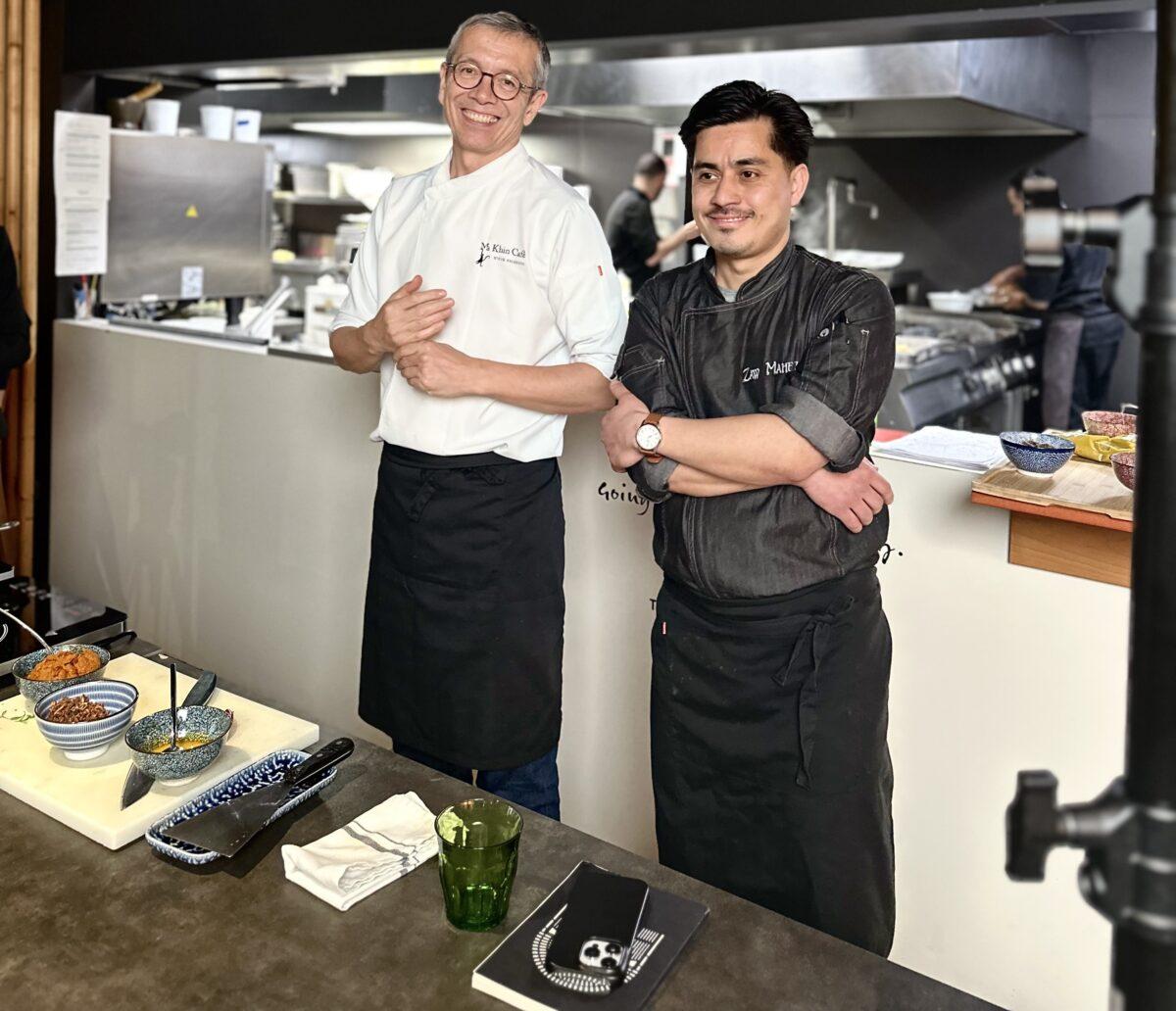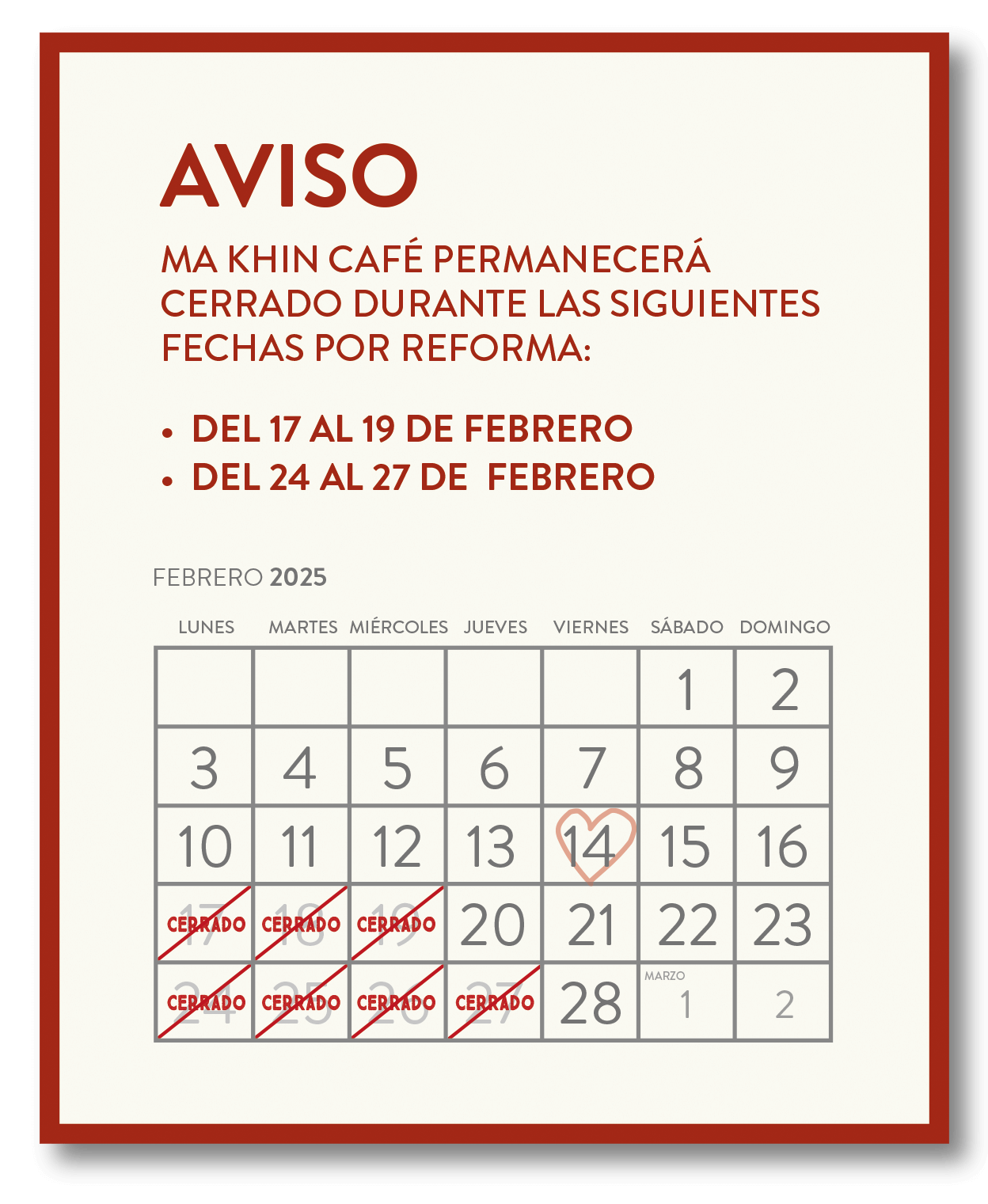Food
Burmese cooking demo at Ma Khin Café delights lovers of southeast Asian food
- Burmese cooking: Steve Anderson and Zaw Mahesh shared their vision of Decolonial Food and authenticity.
- The 50-plus people in attendance learned how to cook dry khao swe, a classic Burmese dish cooked by Steve Anderson; as well as grilled chicken marinated in fermented tea leaves, one of the specialities that Zaw Mahesh offers in Lahpet, his acclaimed restaurant in London.
- The presentation by the two chefs was followed by a dinner with the special Burmese menu available at Ma Khin Café from 18 to 21 May.
- The event was held in the framework of Valencia Culinary Festival
The Burmese cooking demo held yesterday at Ma Khin Café, scheduled within the programme of activities organized for the Valencia Culinary Festival, aroused the interest of a numerous group of lovers of southeast Asia food in Valencia.
Over the course of two hours, the chefs Steve Anderson, owner of Ma Khin Café, and Zaw Mahesh, co-owner of Lahpet (London) transmitted their passion for Burmese food to all those in attendance, while at once reflecting on the Decolonial Food philosophy and the concept of authenticity.
From a respect for and an appreciation of the wealth of different culinary traditions, the careers of both chefs evince a constant focus on the intersection and exchange of cultures.
Burmese food and the Decolonial Food philosophy
“We are convinced that sharing ideas, ingredients and good practices is instrumental in helping our gastronomy and way of eating to evolve. We want to make our city more cosmopolitan,” claimed Steve Anderson.
In his introduction, Steve Anderson explained how Ma Khin Café adapted khao swe, one of the most popular dishes from Burma (present-day Myanmar). Khao swe consists of rice noodles traditionally served in a spicy broth with chicken and poached egg. In fact, it’s the dish Steve made in his appearance on Masterchef. Last night in Ma Khin Café, Steve showcased a dry version of the same dish with crispy fried eel. When Steve asked Zaw whether he considered the dish “authentic” Zaw answered: “In one single street in Yangon you will come across ten different versions of khao swe. What you do in Ma Khin Café, as a Burmese-Valencian dish, is as authentic as any one of those ten.”
Burmese cuisine, the great undiscovered secret of southeast Asian food
In turn, Zaw Mahesh explained one of his signature dishes from Lahpet, his renowned Burmese restaurant in London. His marinated chicken skewers aroused particular interest because of the unusual marinate using fermented tea leaves mixed with lime juice, shallots, sunflower oil and garlic. The skewers are then served with a sauce consisting of natural yogurt, fresh mint, fresh coriander, ground cumin, salt and fresh chilli peppers.
“Burmese food is rich in flavours,” Zaw Mahesh underscored. “Savoury, spicy, bitter, sweet… are all mixed together in a wide range of combinations. It’s a cuisine with lots of shades and nuances, and yet it is still largely unknown by the wider public. And, like all other national cuisines, wherever it goes it ends up adapting to local tastes and ingredients. In London I can import ingredients directly from Burma, so it is really fascinating to see how the creative team here at Ma Khin Café use local ingredients to get these Burmese flavours, staying true to its mission to produce a meeting between different gastronomic cultures.”
After the cooking demo, all the attendants shared a pleasant dinner with the chefs in which they got to taste the special Burmese menu on offer at Ma Khin Café from 18 to 21 May 2023, also within the framework of the Valencia Culinary Festival.
Special Burmese menu from 18 to 21 May at Ma Khin Café
The special menu was designed by the chefs Zaw Mahesh and Steve Anderson, choosing a selection of standout dishes that will give customers a taste of Burmese food and culture. In addition, they are made with the cosmopolitan and contemporary personality that characterises their individual cooking styles.
Largely unknown outside the country itself, Burmese food is not easy to pigeonhole. Myanmar (formerly Burma) has borders with India, Bangladesh, China, Laos and Thailand. And this is clearly reflected in its food. The closer to one particular border or other, the more clearly you can perceive the influence of its neighbouring countries.
So, for instance, Burmese cuisine mixes the spices so typical of Indian food with the spicy noodle soups characteristic of China, or aromatic ingredients like lemongrass and galangal used widely in Thailand and Indochina.
Check out the special Burmese menu and book now while places last. You’re sure to love it!
.png)

